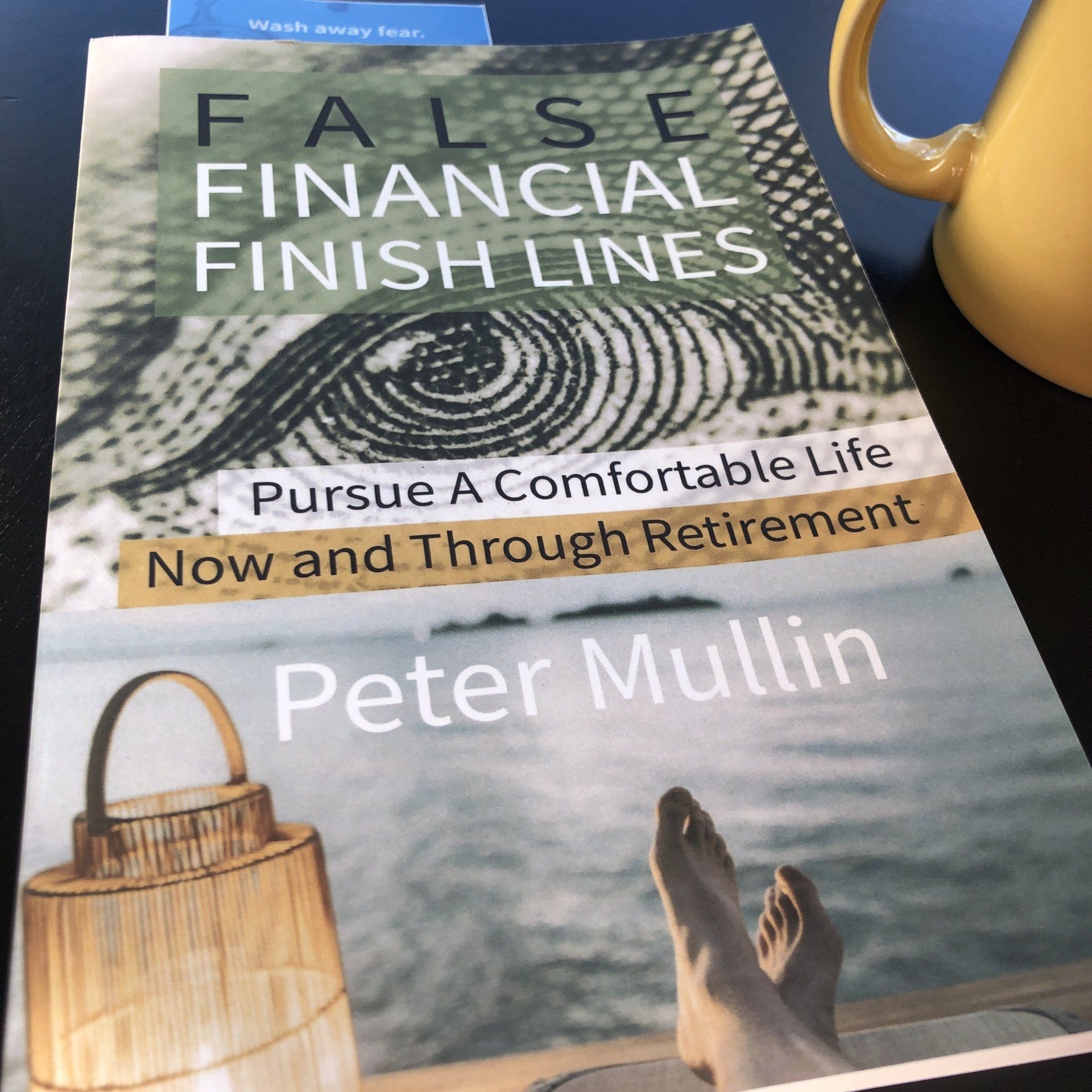Headlines: What difference can a year make?
*NEW! Listen to this post here >> What difference can a year make?
"Consumers' confidence takes dive" - Associated Press (JANUARY 1982)
"Inflation Roars Back To 1981 Levels on Record Gas Prices" -The Street (2022)
"Still Inflated" -New York Times (June 1981)
"Panic sweeps financial markets smashing records of 1929 crash" -
The Globe and Mail (Black Moday 1987)
"DOW soars to record ... despite vulnerable economy" -NY Times (December 1991)
Are today's headlines different? No. They are not. And fortunately, I do not think you will need to live another decade to see this vexatious 2022 environment improve. So we may see a very reasonable ten-year period ahead in terms of an average portfolio return.
I said boldly in May that this would be a policy reversion recession, and I think that is correct. When the June low and August lows arrived, investors may have found me adding a measured amount of risk in the form of quality blue chip stocks to portfolios. This can help the coiled (and rusty?) spring bounce back.
And next year? When we have gone so low, history favors an above- average bounce.
But what about today? Yes, September has brought us to those June lows again. Does it change our destination? No. It's a frustrating traffic jam.
So policy reversion means that there's tightening. You see that impact in places like the critical mortgage rates, probably headed to seven percent soon.
But I would still isolate the "mild" recession to policy goals. The goal: Get prices down.
I am also listening to how much cash is on the sideline. How much money is on the sideline? Good question. Consumers and investors are still holding onto trillions of dollars of cash. This likely makes the cost of a recession to consumers hurt less. However, this is likely also an economic class recession – meaning not all people are treated equally during this recession.
Certainly, low-income individuals have already been feeling the pain of shopping. I cannot believe my eyes when I continue to see a box of cereal for sale for five dollars at Target. I do not know about you, but I am passing up on many of the pantry snack items we might buy because the price is just absurd.
Once again, I think the frustrating thing to any consumer is gas prices. It is still 20% higher than last year, and yet the price of gas lately has jumped lower, supposedly pricing in a recession. So why is gas not below three dollars a gallon already?
And then you have folks doing just fine. People are buying $1000 iPhones. Costco has more members than ever (Wall Street Journal). People are buying $120 yoga pants and $50,000 cars. They are, however, trying to bring inflation down for those who cannot afford to choose between food and heating this winter.
The government is not crying in their tea for the middle-class. So maybe the middle-class millionaire and retirees portfolio is on its own for a while longer.
Mr. Warren Buffett tells us a varation of Will Rogers quote, "The most important thing to do if you find yourself in a hole is to stop digging."
So clients, lets just wait a little while longer.
This material is for general information only and is not intended to provide specific advice or recommendations for any individual. There is no assurance that the views or strategies discussed are suitable for all investors or will yield positive outcomes.
Investing involves risks including possible loss of principal.
References to markets, asset classes, and sectors are generally regarding the corresponding market index. Indexes are unmanaged statistical composites and cannot be invested into directly.
Index performance is not indicative of the performance of any investment and do not reflect fees, expenses, or sales charges.
Securities and Advisory services offered through LPL Financial, A Registered Investment Advisor, Member FINRA/SIPC.
Mullin Wealth Management
http://www.mullinwealth.com
Securities and Advisory services offered through LPL Financial, a Registered Investment Advisor. Member FINRA & SIPC.
The LPL Financial representatives associated with this website may discuss and/or transact securities business only with residents
of the following states: AL, AZ, AR, CA, CO, FL, ID, IL, IA, MN, MO, NM, TX, WA, WI.
- Mullin's take on the "4% Retirement Rule"
- Navigate "Bad Portfolio Weather"
- Tips to Optimize Social Security





Articles and Assets
What are your Priorities?
Well it’s the end of the year. I just searched on Google for “market outlook 2018.” I came up with a little over 58-million “results.”
So should you be investing in stocks in 2018? The quick answer: It’s likely a prudent part of your portfolio. But it depends on your circumstances, right?
It’s apparently popular to throw your hat in the ring.
A mantra that you hear among disciplined professionals is to “stay the course.”
Then you hear “sell high, buy low.”
Who’s right?
The relief of a disciplined strategy is that it can be tailored to you. And tailor we think you should.
Yes, it’s possible that an investor may not utilize stocks in their portfolio at all. Or you may decide to go “all in” with a diversified stock portfolio.
(Side effects from tailoring a strategy may include increased confidence & persistence, apathy toward daily market reports, and increased focus on what really matters.)
Let’s begin with the “Why” of investing for you. Then you can request 15-minutes on the phone discuss your “how.”
So “Why Should You Invest”
Life changes and our “why” of investing ought to transform with life. Some invest for sport – they like the risk/reward of investing – they’re in it for the thrill. I don’t hang with this crowd.
Most of us ought to invest for things we want. Our money & our goals are serious. By investing in a diversified portfolio we can pursue things we want.
1. Living A Comfortable Retirement: Retirement is a noun. It’s up to you to really design and live a retirement that reflects you.
2. Purchasing a Home: Home is a place to live. It can take a down payment.
3. Passing an Inheritance on to Family:
4. Student Loan Shield: This idea is important for many Millennial graduates. Student loans can dominate your budget. But instead of accelerating those payments, what if you paid your required payments, and then invested the additional money that you were going to pay against your loan balance?
5. Emergency Reserves: You probably have read that it’s prudent to keep a relative healthy amount of cash in your checking/savings. Once you’ve achieved that, then you can consider investing additional funds. Go a step further and consider a non-retirement account for you and your house. You can spend this on cars, vacations or use it just as described in #4.
The Dow Jones has seen positive results, so far, in 2017. It’s unusual and sort of uncomfortable as the independent financial advisor. Why is it uncomfortable?
What would sting & linger longer? Finding $20 in the parking lot? Or finding a $20 parking fine on your windshield?
We’ve been finding a lot of metaphorical “$20’s” (i.e. “positive results”) in our portfolios this year. So the second we find a parking fine (or a few in a row) we’ll be sure to ask if stocks are still the right place to park our money.
Complacency can work against us, Dear Clients. Just keep recalling your long-haul strategy and your “why” of investing.
***
Peter Mullin is an independent financial advisor registered through LPL Financial. He lives in Rogers, MN with his family. He was born and raised in St. Cloud, MN. Mullin Wealth Management is located in Waite Park, MN.
The opinions voiced in this material are for general information only and are not intended to provide specific advice or recommendations for any individual.
Investing involves risk including loss of principal.
There is no guarantee that a diversified portfolio will enhance overall returns or outperform a non-diversified portfolio. Diversification does not protect against market risk.
All performance referenced is historical and is no guarantee of future results.
All indices are unmanaged and may not be invested into directly. No strategy assures success or protects against loss.









